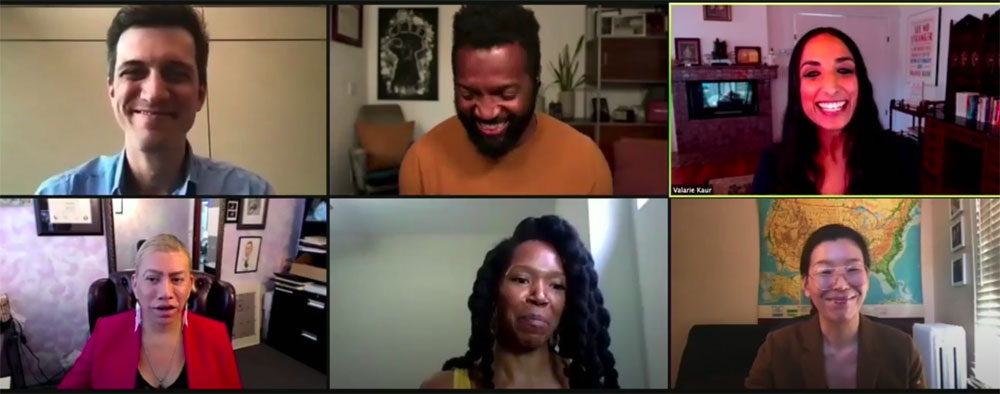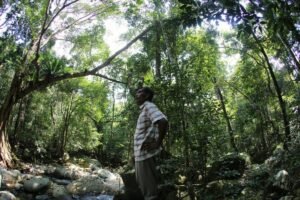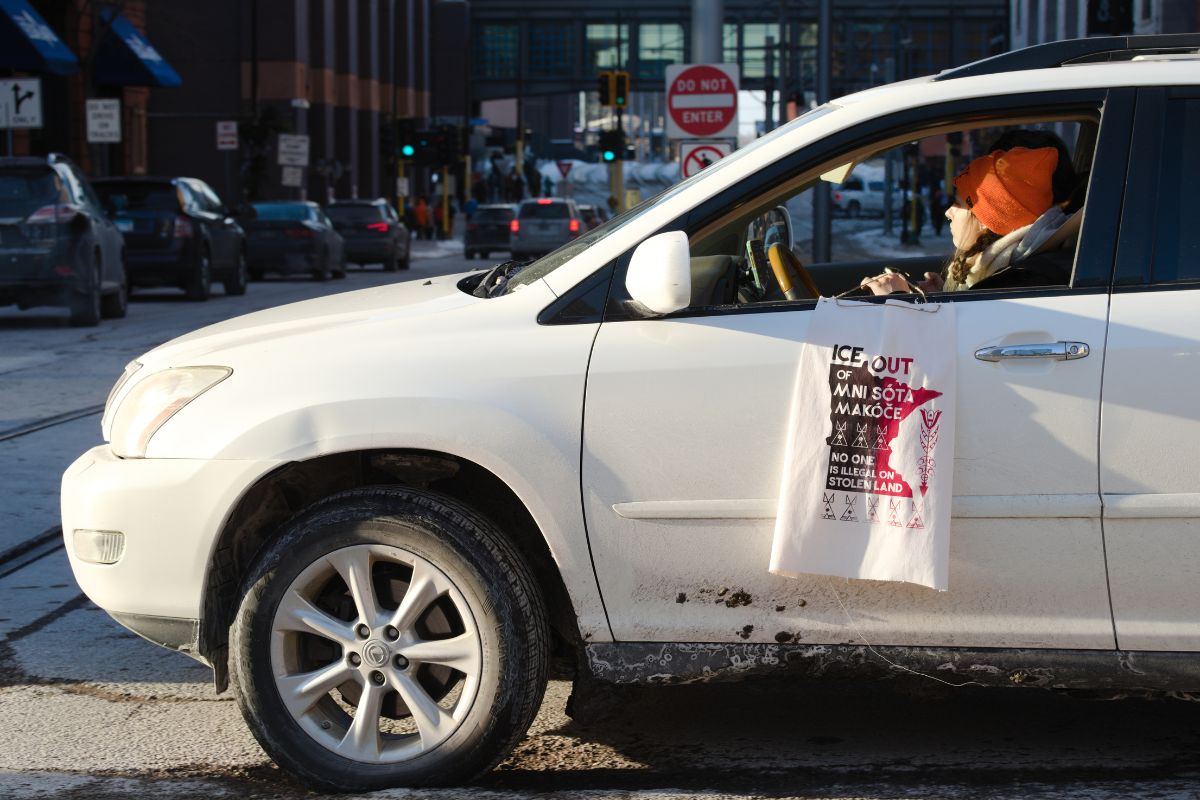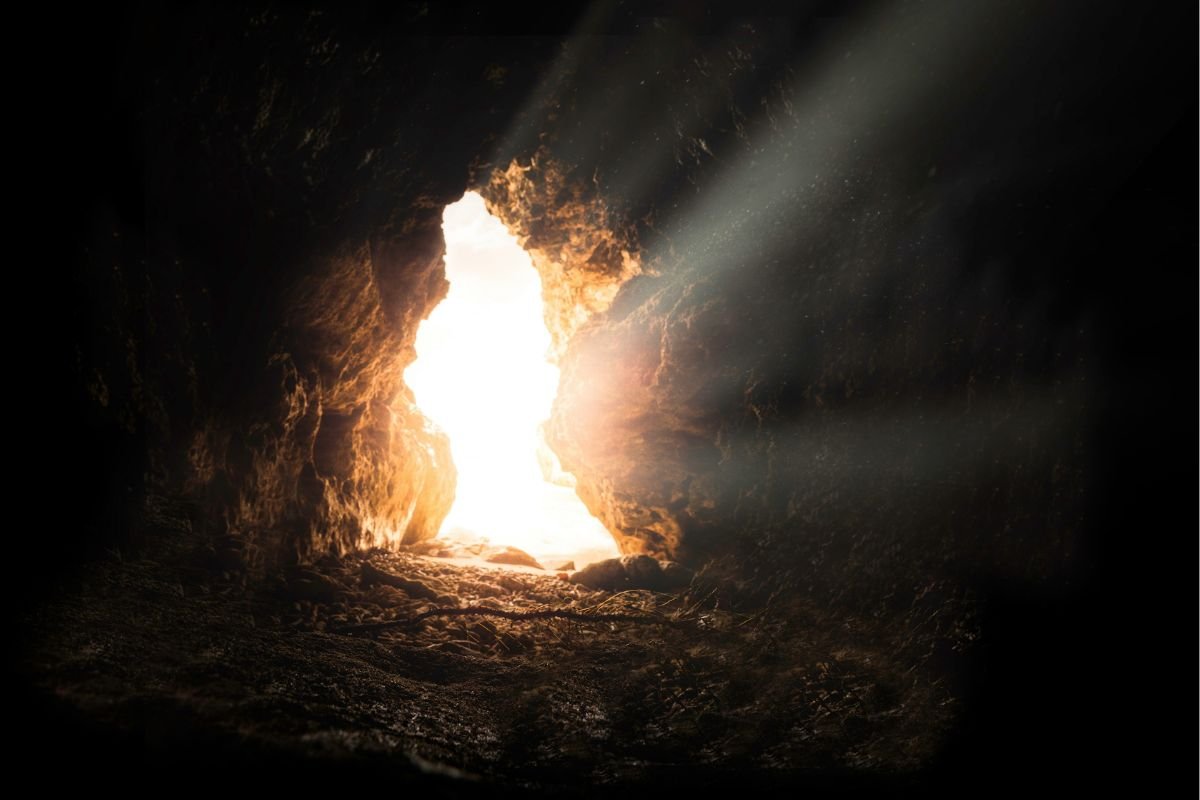
Perhaps you saw, and still remember, Sikh activist and lawyer Valarie Kaur’s impassioned speech in December 2016, on the eve of the Muslim ban, where she equated America’s white nationalism and “enormous rage” with a painful birth.
“What if this darkness is not the darkness of the tomb,” she asked, “but the darkness of the womb? What if our America is not dead but a country that is waiting to be born? What does the midwife tell us to do? Breathe. And then? Push. Because if we don’t push, we will die. If we don’t push, our nation will die. Tonight, we will breathe. Tomorrow, we will labor in love through love and your revolutionary love is the magic we will show our children.”
Since then, true to her word, Kaur has been pushing for a revolutionary love that she hopes will take our communities to reimagine a new country. Last year, she released a book on her experiences called See No Stranger, A Memoir and Manifesto of Revolutionary Love. Today, she leads the Revolutionary Love Project.
Yet Kaur is not just an inspirational thinker; she was also born a connector, with the ability to bring people together. As such, she has helped bring together a large group of committed activists, thought leaders, social justice influencers, and artists to participate in a series of events called The People’s Inauguration. It is a 10-day virtual event, from the intimacy of leaders’ and makers’ sunny nooks to the intimacy of your home, to begin a collective process of “healing, reimagining, and rebuilding America.”
The gathering seeks to create a space where participants commit to these values. Participants are asked to take an oath and commit to do the work necessary to build a new country that can realize this vision.
In Kaur’s own words:
We the people have always pushed the meaning of justice, truth, and dignity and equality in this country. But we’ve never had a moment to reflect on our role in that labor, our role in that American story, so this inaugural moment is an invitation to you to ask yourself, “What am I ready to do? What am I ready to commit to or recommit to as we walk into this new era together?” This labor of birthing the America that we dream is going to be a long labor.
[…]
Sign up for our free newsletters
Subscribe to NPQ's newsletters to have our top stories delivered directly to your inbox.
By signing up, you agree to our privacy policy and terms of use, and to receive messages from NPQ and our partners.
Our nation is in transition. The forces we’ve seen in the last few years, the white supremacy, the assaults in our democracy, those are all signs of resistance to a nation that is changing.
[…]
Sound government is necessary, and we’re gonna hold our elected accountable, we’re going to push for those policies that we need, but what we need to transition this country is a shift in culture and consciousness…to become anti-racists, equitable, sustainable. To becoming the beloved community that Dr. King called us to, we have to do this labor with love. And I’m not talking about sentimentality, civility, no. I’m talking about the muscular kind of love. The love that inspired entire non-violent movements for justice. Love as labor. Bloody. Fierce. Demanding. Life-giving.
Kaur’s vision is, in short, to give birth to a new nation—not just a better nation, but one that has yet to exist. Kaur talked about how despite her family having been in this country for over 100 years, these past four years never felt darker and more traumatic as hate violence kept escalating. By building spaces of renewal, allowing ourselves to breathe and build strength, and committing ourselves to the hard work ahead, we can create a nation that not only includes communities of color but is reimagined by this uniquely beautiful and brave multiracial nation.
During the first event on January 21st, Valarie called upon participants like Ai-jen Poo, co-founder and executive director of the National Domestic Workers Alliance, to voice their experience and commitment for this long-term labor of revolutionary love.
At the event, Poo said, “I have good news—organizing works!”
I started organizing because I believe that everyday people in our everyday acts of courage can change the course of history. More than 20 years later, I know this to be true. I know also that the biggest organizing challenge of all time is still ahead of us. To imagine a country that doesn’t yet exist and bringing it to being step by step.
Amber Starks, an afro-indigenous activist, cultural critic, decolonial theorist, and abolitionist, reflected on her own journey of identity. “Who am I? Who taught me about myself? And do I really believe it? And in asking myself these questions, it is required of me to be self-aware outside the bounds of oppression,” she said. “My answer reflects my values and my identity based on who my people say I am, and not who my oppressors believe me to be.”
This is just a small window into this journey. Are you prepared to take the oath?—Sofia Jarrin












